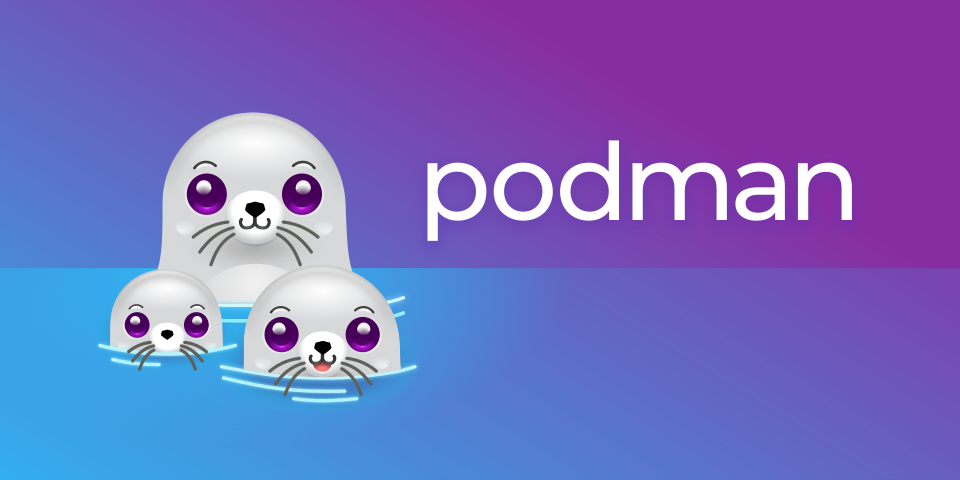Currently Empty: ₹0.00
Containers
Podman – A Secure, Daemonless Alternative to Docker

Podman Overview
As containers have become the backbone of modern application deployment, tools like Docker have played a vital role in helping developers build, ship, and run applications anywhere. But with great power comes great responsibility—especially around security. Enter Podman, a container engine that offers Docker compatibility with a much stronger security posture.
In this blog, we’ll explore what Podman is, how it works, and why it’s being embraced as a more secure alternative to Docker.
What Is Podman?
Podman is an open-source, daemonless container engine developed by Red Hat. Like Docker, it lets you run, build, and manage containers and images. However, it was designed from the ground up to be more secure, more modular, and better aligned with Linux best practices.
Podman is part of the libpod project and provides a nearly drop-in replacement for Docker. In fact, the commands are so similar that you can often alias docker to podman and keep working without rewriting scripts.
Docker’s Security Problem: The Daemon Dilemma
To understand Podman’s advantage, we need to talk about one of Docker’s biggest architectural weaknesses: the Docker daemon.
How Docker Works (the Problem)
Docker runs a centralized daemon (dockerd) as root. This daemon manages containers and images for all users on the system. That means:
-
All Docker containers are ultimately managed by a single root-owned process.
-
If a user has access to the Docker socket (
/var/run/docker.sock), they can execute arbitrary root-level commands on the host. -
This effectively makes Docker a root access escalator in multi-user systems.
For example:
The command above mounts the entire host filesystem into a container — and it works because Docker assumes root-level access via the daemon.
This is a huge security concern, especially on shared systems or CI/CD environments.
How Podman Solves This
Podman was designed to eliminate the need for a root-owned daemon and avoid giving containers unnecessary privileges.
Daemonless Architecture
-
No background process.
-
Containers are launched as child processes of the user’s shell, not through a system-wide service.
-
Each user runs containers under their own UID.
Rootless Containers
Podman can run entirely as a non-root user, using Linux kernel features like user namespaces and cgroups. This dramatically reduces the attack surface.
This container runs under your UID, not root, unless you explicitly choose otherwise.
No Docker Socket Risk
Since there’s no equivalent of /var/run/docker.sock, there’s no universal socket that can be hijacked to gain root access. This makes Podman far safer in multi-user environments or public CI systems.
Better SELinux/AppArmor Integration
Podman integrates more tightly with Linux security modules like SELinux, AppArmor, and seccomp, letting you enforce fine-grained policies per container.
Podman vs Docker: Security-Focused Comparison
| Feature | Docker | Podman |
|---|---|---|
| Requires root daemon | ✅ Yes | ❌ No |
| Rootless containers | ⚠️ Limited/Experimental | ✅ Fully supported |
| User namespace support | ✅ Partial | ✅ Full |
| Docker socket vulnerability | ⚠️ High (full root access) | ✅ None (no socket used) |
| SELinux/AppArmor integration | ✅ Basic | ✅ Strong, default enforcement |
Getting Started with Podman (Safely)
Install Podman
On Fedora:
On Ubuntu:
Run a rootless container
List containers (user-only)
Run a multi-container pod (Kubernetes-style)
Generate systemd service for container
Final Thoughts
Podman offers everything Docker does—image management, container lifecycle commands, and even Kubernetes pod simulation—but it does so without compromising your system’s security.
By removing the daemon, supporting rootless operation, and aligning with Linux security tools, Podman is a compelling choice for:
-
Developers who want a safer local dev environment
-
Sysadmins managing multi-user Linux servers
-
DevOps engineers looking for secure, scalable container tooling
-
CI/CD pipelines where privilege escalation must be avoided
Docker paved the way for containerization—but Podman is pushing it forward, with security and modern infrastructure in mind.




